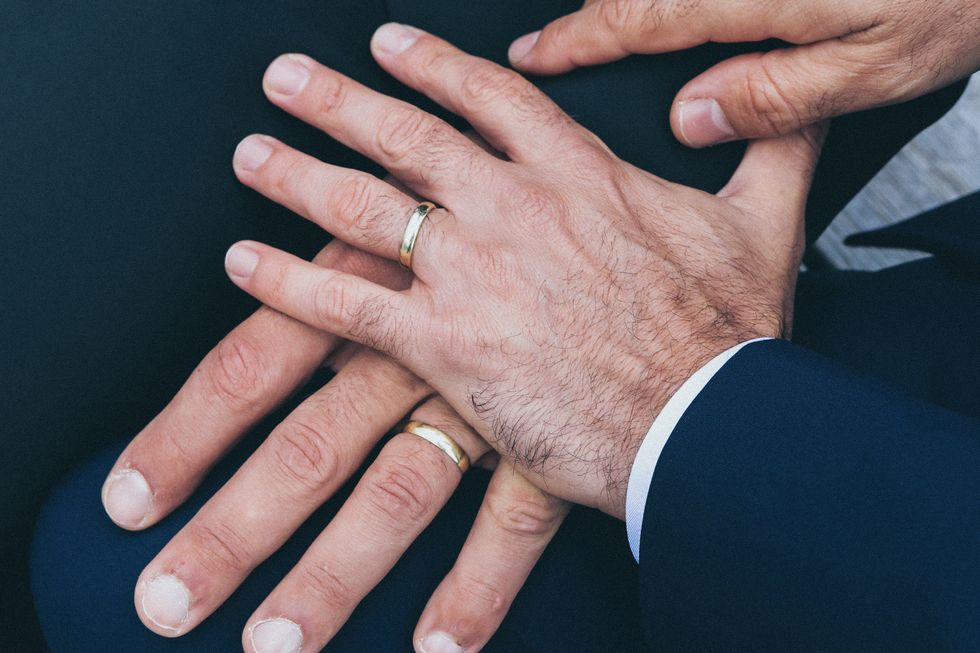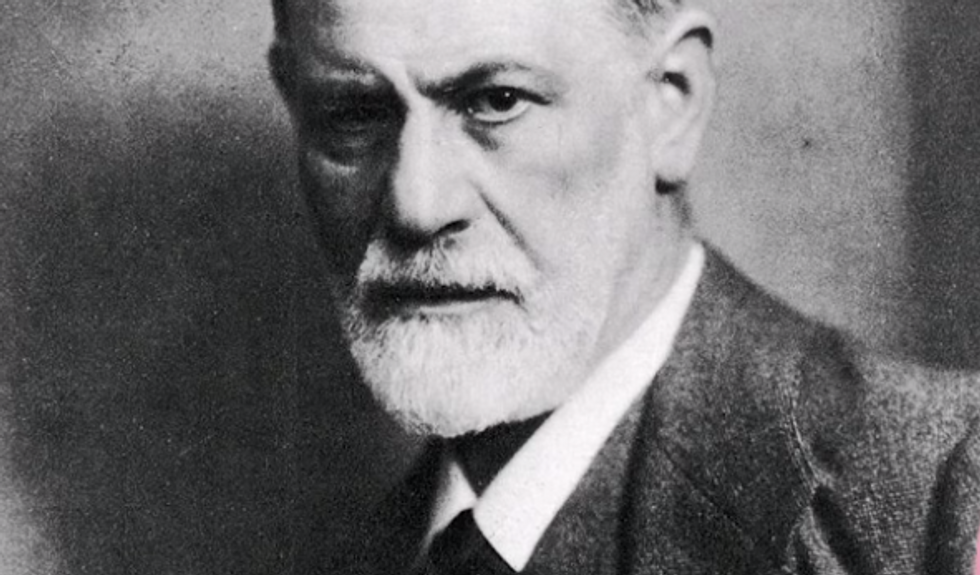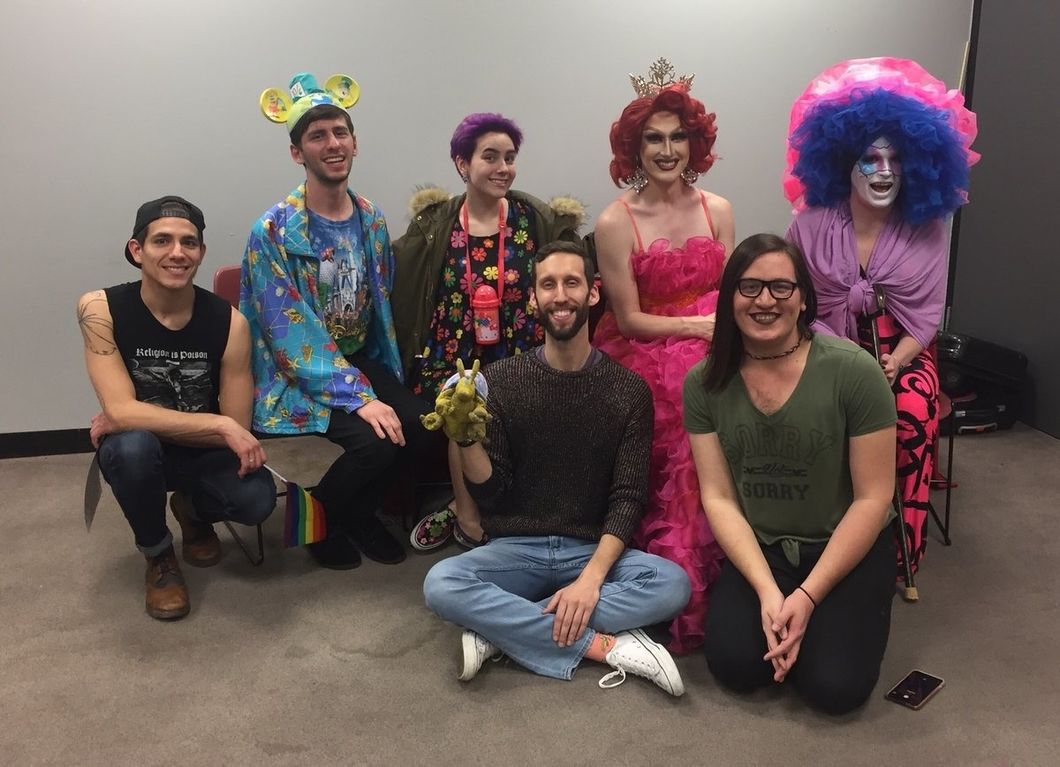Yeah, Political Correctness Is Cool, But What About Our First Amendment Right?
I want to live in a world where people can express how they feel without causing a riot, is that too much to ask?
Let me begin by saying, I consider myself to be pretty liberal. I believe in freedom of speech and protecting that right. I'm also a college student in California, which means I've experienced conservative speakers stepping on my campus to spew their ideas.
What encourages these individuals to come to some of the most liberal schools? At first, I didn't understand why conservative speakers would even want to step foot on a liberal college campus.
In 2017, right-wing commentator Milo Yiannopoulos attempted to speak at the University of California at Berkeley. Following protests and riots, more than $100,000 worth of damage resulted. While many of the protestors were unaffiliated with the college, President Trump issued a statement threatening to seize federal funds for UC Berkeley.
Posted to Twitter, because Trump knows that the fastest way he'll get all the attention he so desperately needs, Trump tweeted: "If U.C. Berkeley does not allow free speech and practices violence on innocent people with a different point of view — NO FEDERAL FUNDS?"
Ok, here is the problem. As much as it pains us liberal college students to allow people with obviously opposing views to step foot on our turf, WE HAVE TO.
Here me out. Liberals are supposed to protect free speech, right? Political Correctness is important to practice because language or policies that are meant to cause offense is not something Americans or America should be proud of. Political correctness attempts to avoid offense to particular groups of people in society, so please tell me why this is a bad thing.
Political correctness is not a bad practice. What can be bad, however, is being "too" politically correct. Sometimes balancing the truth and protecting people's feelings is impossible, and here lies the issue at hand.
When college students on liberal campuses like myself prohibit conservative speakers from sharing their beliefs and exercising their first amendment rights, we become the bad guy. We cannot do this, or it will lead to our own demise. When liberals begin telling conservatives they must be politically correct, that is one thing. Political correctness is a good goal to have. Yet, when liberals begin keeping conservative from speaking because of what they have to say, liberals become undemocratic.
I know it's hard. I don't agree with a lot of things conservatives say. I want more people, in general, to adopt political correctness because I am tired of hearing offensive stereotypes, hurtful comments, and overall hate about fellow American citizens.
Can't you say what you need to say without causing others pain?
No, apparently not...and that's the problem about political correctness. Those who do not support its claim that by practicing political correctness, their point is not getting across. When you have to sugarcoat it, the message is lost, or at least that's what people claim when they oppose being politically correct.
I don't understand this in the slightest. I was raised to be kind to others and when I have advantages, I place myself in other peoples' shoes to remind myself to be humble. But some people don't practice the same morals. That's ok.
But political correctness is not the culprit. Me being kind and nonoffensive is not the same thing as me taking away your first amendment right of free speech. Some people don't understand this relationship, however, and thus, political correctness is heavily debated in today's America.
I don't want to limit anyone's freedom of speech. I don't want to appear undemocratic by striving for politically correct language. I don't want liberals like me to be condemned for being unamerican when all we ask is for kindness, compassion, and understanding when you come to our campus.
I do hope America can one day be a hate-free zone where varying beliefs can be practiced without difficulty. Until then, say what you gotta say because it's your right. But please, just be mindful of others when you do.


























If Someone Checks Your Racism You're Not The Victim Here, So Here Are Some Tips For Not Acting Like It Either
The way you react to being accused of racism can have a bigger affect than the ignorance in the first place, so here's how to respond in those situations.
Psychology Today defines a "Microaggression" as "everyday verbal, nonverbal, and environmental slights, snubs, or insults, whether intentional or unintentional, which communicate hostile, derogatory, or negative messages to target persons based solely upon their marginalized group membership." To put it more plainly, its anything discriminatory that isn't 100% over.
With that in mind, it may seem to some that literally, everything is off limits to joke about nowadays. While the '90s and early 2000s was full of fake acceptance cloaking heavily problematic stereotypes, assumptions, and misconceptions about marginalized groups, it's left us with a heavy "us vs. them" mentality, with "regular people" on one end and "snowflakes" on the other.
"Snowflake" is a relatively new term commonly employed by conservatives to mock the emerging atmosphere of political correctness, "safe spaces" and the uphill battle minorities face in pursuit of equal rights.
The reason for this, among other things, is the fact that the emerging adult community was raised in the above mentioned standards that were upheld in the '90s and early 2000s. Therefore, we're left with people who think they can, and should get away with anything so long as they aren't waving a Nazi flag or sporting white sheets over their heads.
Studies confirm that many people harbor unconscious racial biases, whether or not they would classify as a full-blown racist.The thoroughly depressing reality of that aside, that along with white guilt, or a sense of shame white people may experience considering the demographic's historical treatment of people of color and other minority peoples, can make racial issues exceptionally difficult to talk about.
With lack of communication comes inevitable ignorance of how a comment, action or opinion may be considered offensive to a marginalized person, leaving many social interactions with both parties angry, sad or even fearful from its outcome.
Ignorance is often not the explicit fault of the ignorant person. However, the problem with today's society is not solely ignorance, nor that people are too sensitive all of a sudden.
For the first time in the nation's history, the social climate allows minority people to be emboldened enough to call people out on their racism. This is a massive societal win for many marginalized groups who no longer have to stand in as a token for their demographic so corporations can meet their diversity quota.
Although, it was clearly not something the bulk of the nation was prepared for.
With the mixture of this newfound liberation for minority groups, an ignorance that has spanned centuries and how difficult people find it to communicate about racial issues, we have the perfect storm for someone to go on the defense instead of treating the accusation of racism as a learning experience.
Thankfully, the concepts behind responding in an appropriate way are pretty straight forward.
1. You Are Not The Victim Here.
There are too many people who get accused of saying something offensive, then immediately go on the defensive. This gets everyone absolutely nowhere.
It probably really sucks to feel like someone thinks you're a terrible person, especially when you didn't realize you were in the wrong. Considering America's history with racism, being singled out for contributing to that is going to bring up a lot of feelings. So naturally, people may turn to arguing and making excuses for the terrible thing they did or said.
The pro-level of this reaction is when a person points out something ignorant or discriminatory, then the accused starts crying.
This immediately takes the attention off of the victim and onto the offender, because the offender then needs to be consoled before any progress in the interaction is made.
Any of these reactions, or feeling that someone is being "mean" to you by checking your ignorance, is a product of white privilege. So, if you care about being a good ally to the marginalized section of our community, its best to save the crying or yelling as a last resort.
2. Apologize First.
Do not pass go, do not collect $200.
Apologizing first, even if you don't understand what you've done, keeps all doors of communication open so you can dig deeper into the situation a little more.
Even if you don't feel remorse—out of ignorance, stubbornness or skepticism—apologizing first acknowledges that they are a human that deserves respect which you've just violated somehow.
Here our pre-school days come in handy, as we can all do well to "treat other's like we want to be treated". Think on how you'd feel if someone disrespected you in the middle of your day, then that empathy should be applied to whomever you've hurt.
If the accused responds in any way besides this, the opportunity for fixing things is annihilated, and the hurt that you both are feeling has no chance of being relieved. Granted, after an apology has been issued and a conversation follows, you might still feel that you're in the right or feel bad in general. However, you still did your best to alleviate some of their discomforts, maintained the cordiality of the relationship and know how to avoid similar situations in the future.
3. Prove To Yourself And Them You're Not A Bad Person
I'm multiracial but look white as hell. I was ignorant as hell as a kid. I've been there where something you said offended when it was clearly not your intention. In fact, in the case of microaggressions, the intent is often not to offend.
So, now it's your job to do your best to prove to them and yourself that you're not a bad person.
The only way to accomplish this is by listening.
Listening to why they were offended, why its a problem and asking questions about the reasons behind it or how to avoid repeating the mistake in the future is the key to growing. And consequentially you might get to learn something that day, which everyone should be thankful for.
Facing these interactions humbly and with an open mind encouraged growth as well as learning, so even though you may feel like crap, this opportunity is definitely a good one.
4. Follow Through
After the badness has happened and been pointed out, an apology has been made and a conversation has been had, the effect of the situation should not end there.
If you're still a little unclear on the offense or want more information, take it upon yourself to watch a Ted Talk or two to keep the conversation going internally.
Then, it's important to actually apply what you've learned to your thoughts, words, and actions. Once it's been pointed out its much easier to identify discriminatory lines of thinking, reconsider previous opinions and even reevaluate how ignorance might be applied to other areas that you hadn't thought of.
If you feel they might still be upset, especially if they're someone you run into often or work with, a check in can go a long way, too. A simple "Hey, I just wanted to make sure you're still OK after the other day" can easy any resentment that might be lingering. Even if that still doesn't fix things, you know you've done everything in your power to make it right.
Even attempting to follow these steps can make all the difference in developing the quality of our interactions a safer society for everyone. Although this may seem like inconsequential in the grander scheme of things, change is truly inspired one baby step at a time, so don't knock it till you try it.